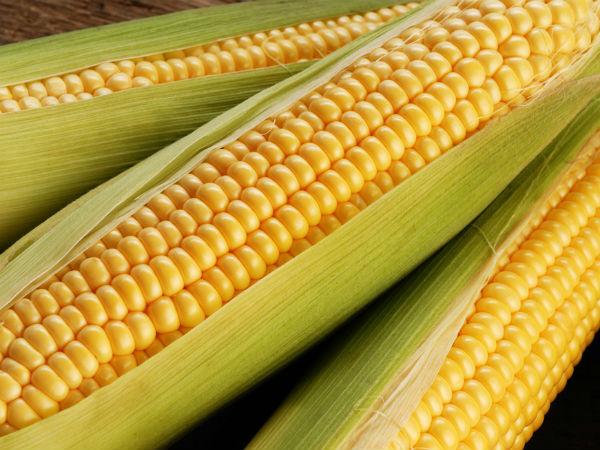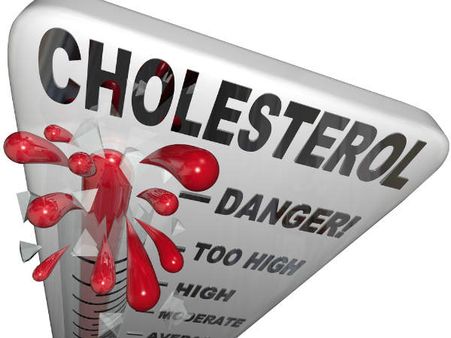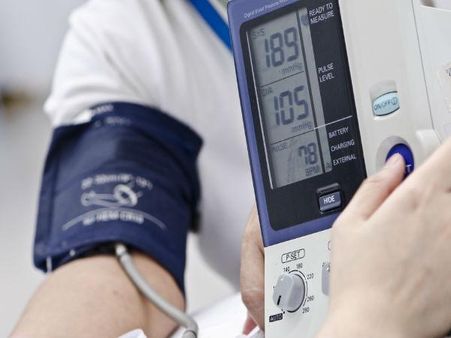Just In
- 1 hr ago

- 2 hrs ago

- 3 hrs ago

- 10 hrs ago

Don't Miss
- Automobiles
 New Features Of The Ultraviolette F77 Mach 2: Uniting Performance, Safety, And Technology
New Features Of The Ultraviolette F77 Mach 2: Uniting Performance, Safety, And Technology - Sports
 IPL 2024: Why did Rishabh Pant Apologize to Cameraperson after GT victory?
IPL 2024: Why did Rishabh Pant Apologize to Cameraperson after GT victory? - Movies
 Aadujeevitham Box Office Collection Day 29 Prediction: Strong Overall Performance Amidst Recent Decline
Aadujeevitham Box Office Collection Day 29 Prediction: Strong Overall Performance Amidst Recent Decline - News
 Sonia Gandhi Shed Tears For Terrorists Killed In Batla Encounter: BJP Chief Nadda
Sonia Gandhi Shed Tears For Terrorists Killed In Batla Encounter: BJP Chief Nadda - Finance
 Trade Setup: Nifty Continues Winning Streak Ahead of April F&O Expiry, Q4 Earnings In Focus
Trade Setup: Nifty Continues Winning Streak Ahead of April F&O Expiry, Q4 Earnings In Focus - Education
 JEE Main Result 2024 Out, Telangana's 15 Toppers Shine, Check Statewise List of 56 Candidates with Perfect 100
JEE Main Result 2024 Out, Telangana's 15 Toppers Shine, Check Statewise List of 56 Candidates with Perfect 100 - Travel
 Escape to Kalimpong, Gangtok, and Darjeeling with IRCTC's Tour Package; Check Itinerary
Escape to Kalimpong, Gangtok, and Darjeeling with IRCTC's Tour Package; Check Itinerary - Technology
 OPPO Find X7 Ultra Camera Deep-Dive: Pushing the Boundaries of Photography on a Smartphone
OPPO Find X7 Ultra Camera Deep-Dive: Pushing the Boundaries of Photography on a Smartphone
Why Eating Corn Is Good During Monsoon
Love eating corn during monsoon? Then here are its major health benefits that you need to know.
We all have heard of corn and most of us love to eat it as well. Corn, also called maize, though viewed as a vegetable, is actually a food grain. Corn, apart from being delicious, is highly rich in vitamins, minerals and fibre and offers several health benefits.
Organic or unprocessed corn is rich in vitamin C. It is also rich in magnesium, potassium and vitamin B. It contains a good dose of two antioxidants, linked to eye and skin health called zeaxanthin and lutein.
It gives you a good amount of dietary fibre that you need along with some complex carbohydrates that are great sources of energy.
Although corn is usually grouped together with other grains and used in similar ways, it is not actually a grain and does not contain any gluten.

These yellow kernels are protein packed and are perfect to be consumed during any part of the day.

Corn is a dry food and easily available during the monsoon. It is a life saviour and the most loved food during the rainy season. Add a dash of salt and lemon to satisfy your taste buds and you are safely consuming a very healthy snack in the monsoon.
Here are some health benefits of corn you should know about, so that you do not miss out on eating corn this rainy season.

Good For Digestion:
Corn is rich in dietary fibre, containing both soluble and insoluble fibres. However, the content of insoluble fibre is high, which prevents constipation and intestinal problems by promoting soft and bulky stool that can move easily through the intestines. This helps to avoid irritable bowel syndrome and diarrhoea.
With the easy movement of stool, lots of digestive problems like constipation, haemorrhoids and colon cancer can be avoided. The soluble fibre in corn helps to block cholesterol absorption by turning it into a gel-like consistency.

Prevents Anaemia:
Anaemia is caused by the deficiency of vitamin B12 and folic acid. The deficiency of iron also causes anaemia. Corn contains a significant amount of iron, which is one of the very essential minerals to form new red blood cells.

Good For The Heart:
Corn oil contains an optimal fatty acid combination, thus enabling omega-3 fatty acids to remove the damaging bad cholesterol and replace them at the bonding sites. This prevents the arteries from being clogged, thereby reducing the blood pressure and reducing the risk of heart attack and stroke.

Increased Energy:
Corn being a starchy vegetable, it contains high amounts of carbohydrates that provide you with enormous energy. It also ensures the proper functioning of the brain and nervous system.

Lowers Cholesterol:
Sweet corn is rich in vitamin C, carotenoids and bioflavonoids that keep your heart healthy by controlling the cholesterol levels and increasing the flow of blood. Corn oil has the capacity to lower the bad cholesterol and increase the good cholesterol in your body.

Controls Hypertension:
Corn is a good source of a vitamin B called pantothenic acid. This helps in carbohydrate, lipid and protein metabolism, thereby reducing stress. The presence of phenolic phytochemicals protects you against hypertension.

Controls Diabetes:
The fibre in corn helps to keep your blood sugar levels normal, by slowing down the rate at which glucose or sugar is released into the blood stream. The regular consumption of corn kernels assists in the management of non-insulin dependent diabetes.

Reduces Cancer Risk:
It has been proven by researches that the antioxidants found in corn have the capacity to fight and eliminate free radicals that can cause cancer. Additionally, corn is a rich source of phenolic compound and ferulic acid which have the capability of fighting tumours in the breast and liver.
-
 recipesMonsoon Soup Recipe For Good Health: How To Prepare Dill Leaves And Corn Soup
recipesMonsoon Soup Recipe For Good Health: How To Prepare Dill Leaves And Corn Soup -
 diabetesAre Cornflakes Good For People With Diabetes?
diabetesAre Cornflakes Good For People With Diabetes? -
 recipesCorn Pulao Recipe: How To Make Corn Pulao
recipesCorn Pulao Recipe: How To Make Corn Pulao -
 diet fitnessCorn Or Babycorn; Which One Is Healthier For You?
diet fitnessCorn Or Babycorn; Which One Is Healthier For You? -
 diet fitness9 Ketogenic Diet Foods To Avoid
diet fitness9 Ketogenic Diet Foods To Avoid -
 nutritionTop 12 Foods That Are Rich In Folate
nutritionTop 12 Foods That Are Rich In Folate -
 wellnessList Of 11 Foods You Can't Eat With Braces
wellnessList Of 11 Foods You Can't Eat With Braces -
 recipesTossed Paneer And Sweet Corn Pizza Recipe: How To Prepare Tossed Paneer And Sweet Corn Pizza At Home
recipesTossed Paneer And Sweet Corn Pizza Recipe: How To Prepare Tossed Paneer And Sweet Corn Pizza At Home -
 babyCan Toddlers Eat Popcorn?
babyCan Toddlers Eat Popcorn? -
 recipesMushroom And Corn Fricassee
recipesMushroom And Corn Fricassee -
 disorders cureHome Remedies For Fatty Liver Disease & Foods To Avoid It
disorders cureHome Remedies For Fatty Liver Disease & Foods To Avoid It -
 nutritionIs Corn Actually A Healthy Snack?
nutritionIs Corn Actually A Healthy Snack?


 Click it and Unblock the Notifications
Click it and Unblock the Notifications



